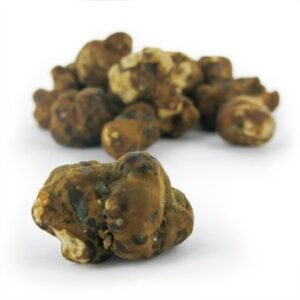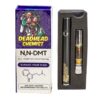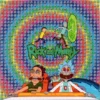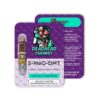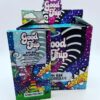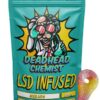Psychedelic therapy (sometimes referred to as psychedelic-assisted psychotherapy or PAP) is a type of psychiatric practice that involves ingesting a psychedelic substance as part of a psychotherapeutic process.
In psychedelic therapy, the use of psychedelics is typically combined with talk therapy.
A range of consciousness-altering psychedelic drugs are currently being used or researched for therapeutic purposes in both clinical and non-clinical settings.
Some are derived from plants, like psilocybin (magic mushrooms), DMT, peyote, ayahuasca, and ibogaine. Others — including ketamine, MDMA, and LSD — are chemical compounds.
While Indigenous communities have used psychedelics in therapeutic and religious settings for centuries, psychedelic therapy is relatively new in Western clinical settings.
It’s becoming more popular with the increased legalization of certain psychedelic substances, a rise in mental health conditions, and a lull in psychopharmacological research.
What is Psychedelic therapy used for?
Between the 1950s and 1970s — before former President Richard Nixon outlawed them with the Controlled Substances Act — scientists produced a breadth of evidence both verifying and pointing toward the therapeutic potential of psychedelic therapy to treat:
- addiction
- mental health conditions like depression and anxiety
- post-traumatic stress disorder (PTSD)
In recent years, renewed interest and investment have fueled additional research, much of which is ongoing.
Here’s a look at the potential uses of various psychedelics.
Ketamine
Ketamine is the most-studied psychedelic drug for mental health therapy.
In low doses, it has shown to be beneficial in numerous trials exploring its potential to treat depression, but its effects are short-lived.
For people with severe depression, for example, researchTrusted Source shows significant improvement after treatment, and results last about 6 to 8 weeks, on average.
These findings have led to the development of a drug called Spravato. It’s a nasal spray that delivers the active ketamine ingredient. However, intravenous ketamine administration is considered to be more effective and less expensive.
MDMA
Multiple Phase 2 clinical trialsTrusted Source — which is done to discern whether a treatment works — suggests that MDMA can treat PTSD symptoms for up to 4 years.
Researchers have also completed a phase 3 trialTrusted Source, which determines whether a treatment works better than what’s currently available, involving MDMA-assisted therapy for PTSD. This was the first phase 3 trial of any psychedelic-assisted therapy.
Among 90 participants with severe PTSD, 67 percent no longer qualified for a PTSD diagnosis after three treatments and 88 percent had reduced symptoms of PTSD.
The trial sponsor, the Multidisciplinary Association for Psychedelic Studies, says the results could make way for Food and Drug Administration (FDA) approval by 2023.
Psilocybin
Psilocybin, the main compound in magic mushrooms, has shown positive results in treating depression and anxiety in people living with terminal illnesses.
Experts believe trusted Sources could also help with obsessive-compulsive disorder, addiction, and treatment-resistant depression, but more research is needed.
LSD
LSD, a long-lasting, potent psychedelic that’s considered to be the prototype for therapeutic psychedelics, has been shown to help with both alcohol use disorderTrusted Source and anxietyTrusted Source in people living with terminal illnesses.
Psychedelic therapy – How it’s done
At this stage, clinicians are still evaluating the effectiveness of their treatments, so exact dosing, number of treatments needed, and the approach to psychedelic therapy will vary depending on who is guiding you.
That said, most psychedelic therapy in clinical settings is conducted via three stages:
Consultation
The first step is usually a preparatory consultation to ensure that you don’t have any contraindications to the treatment. This is also a good opportunity to discuss your personal background and any goals or concerns you have around psychedelic therapy.
Ingestion
The second phase involves ingesting, either orally or via injection, the psychedelic substance under the supervision of a trained therapist.
There are usually multiple sessions, depending on the type of psychedelic and the treatment plan. For example:
- MDMA-assisted therapy usually involves at least three sessions.
- Ketamine-assisted therapy involves between one and 12 sessions.
- Psilocybin- and LSD-assisted therapy typically involve at least two sessions.
Integration
The final phase is the integration process when the therapist and client work together to integrate meaning from the psychedelic experiences.
Are there any risks?
Some experts have expressed concerns at the rise of self-medicating, particularly after the 2020 Global Drug Survey showed an increase in the number of people who say they are self-treating various mental health concerns with psychedelics.
Many of these concerns stem from the potential contamination of substances that don’t come from a lab-tested source, along with the lack of medical supervision.
Otherwise, psychedelic substances are generally considered trusted Sources low risk, especially when used in a clinical setting.
MDMA can sometimes cause short-term high blood pressure, increased heart rate, and elevated body temperature, but these effects typically go away after use.
Psilocybin may similarly elevate blood pressure temporarily or cause light headaches.
That said, psychedelics have been linkedTrusted Source to an increased risk of psychosis in people with psychotic disorders or a predisposition to them.
There’s also the risk, particularly with LSD use, of hallucinogen-persisting perception disorder (HPPD). This is a rare condition involving intense flashbacks and hallucinations. However, experts noteTrusted Source that this appears to be more common when using substances without medical supervision.
There are a few concerns about ibogaine, including a possible linkTrusted Source to potentially fatal cardiac arrhythmias. As a result, it’s been limited to observational trials so far with a focus on treating opioid addiction.
- Ayahuasca
- ibogaine
- magic mushrooms
- micro-dosing
- Mushroom Chocolate Bars
- Psychedelic Therapy
- Psychedelics medicine
- Psychedelics4 products
- Deadhead Chemist14 products
- DMT9 products
- DMT Vape Pens & Cartridges11 products
- LSD5 products
- Magic Mushrooms18 products
- Mushrooms Grow Kits2 products
- Magic Truffles9 products
- MDMA5 products
- Mushroom Chocolate Bars22 products
- Mushroom Gummies4 products

